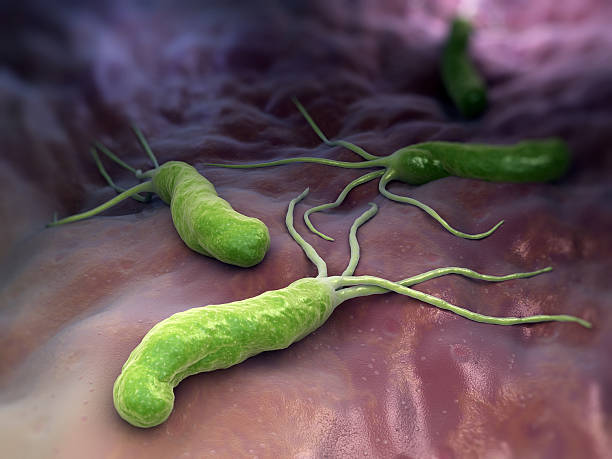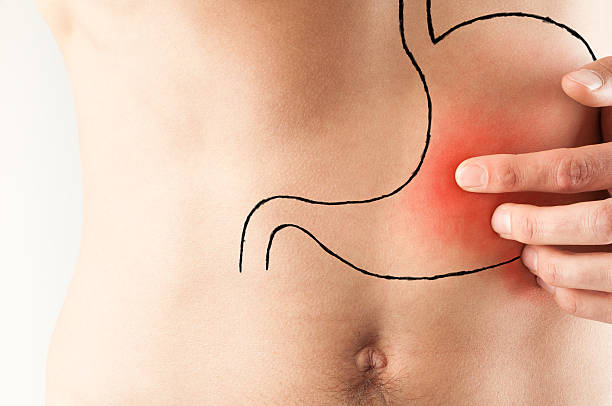How Your Gut Bacteria Shape Digestive Health
Within the complex world of human health. There is an even smaller scale that, for a very long time, has remained unknown and unrecognized. The Forgotten Organ: The book titled Digestive Health and Your Gut Bacteria unmasks a world buried deep within the human gut to show how an array of trillions of microorganisms dictate overall health. These tiny inhabitants, collectively referred to as the gut microbiome. Are not just along for the ride in our bodies but rather more players in this interesting space that plays a critical role in essentially all aspects of our health.

The microbiome of the gut
The Forgotten Organ: Digestive Health and the Role of Gut Bacteria: How Gut Bacteria Shape Digestive health starts with a basic exploration of what this fantastic biome essentially entails. I had the vision of a compacted city in my intestines with billions plus bacteria, fungi, and other live forms in symbiosis. The human body also hosts a personal microbiome, as distinct as one’s fingerprints. Which depends on genetic factors, food intake, geographical location, or personal habits. These are not habitat interlopers of some kind but rather a precise occupancy our body relies on for its functioning.
Both earlier and current studies have shown conclusively that the gut microbiome is not only a mere digestive supplement. The Forgotten Organ: Your Second Brain: Understanding How Gut Bacteria Impact Digestive Disease examines how gut microorganisms come into play in a variety of activities, not only digestion. They signal with our immune system, synthesize crucial vitamins, and supervise metabolism and even mood and cognitive functions. This mutual interdependence between the human body and microbial residents is an association pruned over millions of years of co-evolution.
Gut health and the makeup of the microbiome
When the flora in the digestive system is upset, life can become very difficult indeed. The Forgotten Organ: This article, is titled How Your Gut Bacteria Shape Digestive Health. Explains some forms of dysbiosis and how this can cause some digestive diseases. Chronic gut dysfunction, intestinal dysmotility and inflammation, IBS, IBD, and chronic digestion discomfort are related to microbial disturbances. These disruptions can stem from several causes, such as long-term use of antibiotics, unhealthy dieting, stress, and toxins.
Cultivating the health of the gut microbiome is not one-way and does not solely involve only the administration of probiotics. Another idea is that positive bacteria need to be nourished, and this is made possible through the food that one takes. Yogurt, kefir, and fermented vegetables contain probiotics, which provide effective microorganisms, while garlic, onions. Bananas are prebiotics that feed the good bacteria. The Forgotten Organ: Mental Health How Your Gut Bacteria Shape Digestive Health states that a sufficient amount of balanced and quality food is an essential key to creating a good and strong microbiome.
Beyond Digestion: Organismal Effects of GI Microbiota
Gut bacteria do not just affect the state of the human gut but also other body processes that may be related to human behavior, metabolism, and overall well-being. Recent scientific findings show that the microbiome may help manage immune systems, and mental health, and possibly avert chronic diseases.
It is known that the composition of the microbiome is associated with obesity, type 2 diabetes, cardiovascular diseases, and some neurological diseases. The Forgotten Organ: ‘How Your Gut Bacteria Shape Digestive Health’ shows how they are constructed as communication systems that broker inflammatory messages resulting in tenderness or inflammation anywhere in the body depending on the signals they dispatch.
Immune System Interaction
So, your gut microbiome acts as the first training ground for your immune system to familiarize itself with pathogenic intruders. Some bacteria are beneficial because they help train the immune cells; they must ‘teach’ the organism’s immune system to identify dangerous agents from harmless ones. Thus, when the microbiome is extraordinarily complex. It becomes an excellent barrier against autoimmune diseases and improves the general body’s immune response. The Forgotten Organ: How Your Gut Bacteria Shape Digestive Health demonstrates this close relationship between microbes and immunity.

6 Different Considerations for Maintaining the Health of Gut Microbiome
A variety of lifestyle and environmental factors can greatly modulate the gut microbiota. Diet continues to be the biggest factor. With processed food, excessive sugar intake, and a shortage of dietary fiber being known to upset the microbiome. The Forgotten Organ According to the article titled How Your Gut Bacteria Shape Digestive Health, gut bacteria can perform optimally through a balanced diet, exercise. Managing stress, and timely sleep.
Current Findings, Directions, and Prospective
Microbiome research is relatively a young science that is expanding daily with more emergent discoveries related to microbial complex communities. New techniques based on personalized medicine are underway now, and one’s microbiome composition might define the selection of a particular diet or treatment.
Conclusion
However, the human body’s gut microbiome is one of the most beautiful indications of complicated biology. HHC is not just a passive part of the GI tract but is instead a group of minute creatures that are constantly and actively involved in our wellness. Consciously cultivating the microbiome, awareness, and direct tending of the inner unconscious environment of our digestive tract opens possibilities of intervention toward more effective well-being and disease and even optimal physiological performance.
Making changes to attain a healthier microbiome is not just for the long-term comfort of our stomachs; it’s for the health of a complex system with all its ramifications for healthy living. The Forgotten Organ: Exploring Digestive Health is, therefore, the journey undertaken in How Your Gut Bacteria Shape Digestive Health in order to better understand the extraordinary world of microbiota.

FAQs
In how many days can dieting affect the gut microbiota?
While certain changes are capable of triggering alterations in the composition of the gut microbiota in days, others may take weeks. If not months, depending on nutritional changes.
Do we need to take probiotic supplements for our gut health?
Though in some cases probiotics can be helpful for the microbiome. A varied and healthy diet usually has a positive impact based on the intake of whole foods.
